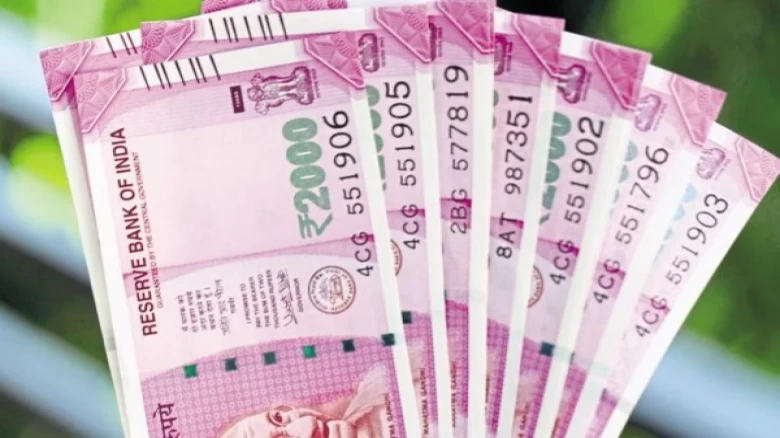The deadline for depositing and exchanging Rs 2,000 currency notes expires on...
Digital Desk: The Reserve Bank of India (RBI) intends to end the acceptance of Rs 2,000 currency notes on September 30.
The RBI said in May that it would eliminate Rs 2,000 notes from circulation as part of its 'clean note strategy.'
While the RBI hasn't specifically declared that Rs 2,000 notes will no longer be legal tender beyond the deadline, it's evident that the central bank wants these notes out of circulation as quickly as possible.
Read what happens after September 30:
When announcing the withdrawal, the RBI stated that the future state of the Rs 2,000 notes would be determined by the amount returned to/deposited in banks.
The Reserve Bank of India said on September 1 that "the total value of Rs 2,000 banknotes received back from circulation is Rs 3.32 lakh crore up to August 31, 2023."
In addition, the RBI stated that only Rs 0.24 lakh crore worth of Rs 2,000 banknotes were in circulation as of August 31, 2023. This means that as of May 19, 2023, 93 percent of the Rs 2,000 notes in circulation had been returned to banks through exchange or account deposits.
On October 1, the RBI will be issuing an update, which may include clarification on the status of the remaining Rs 2,000 notes in circulation.
Given that over 90% of these notes have been returned, the RBI is likely to declare a date when these currency notes will no longer be considered legal tender.
Meanwhile, for a definitive answer, an official declaration from the RBI is required.
Individuals can now swap Rs 2,000 notes at any of the RBI's 19 Regional Offices (ROs) or any nearby bank branch until September 30.
According to the RBI's standards, these transactions should take place without the need for a request slip or ID proof.
However, some public sector banks may have alternative procedures in place, so it's best to have an ID proof on hand when exchanging these notes to ensure a seamless transaction.

Leave A Comment